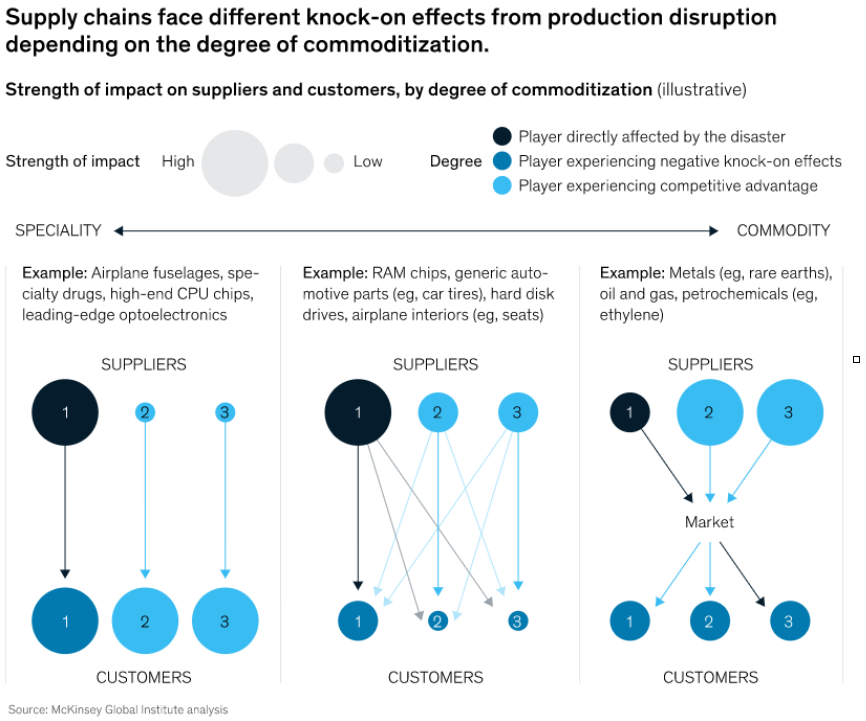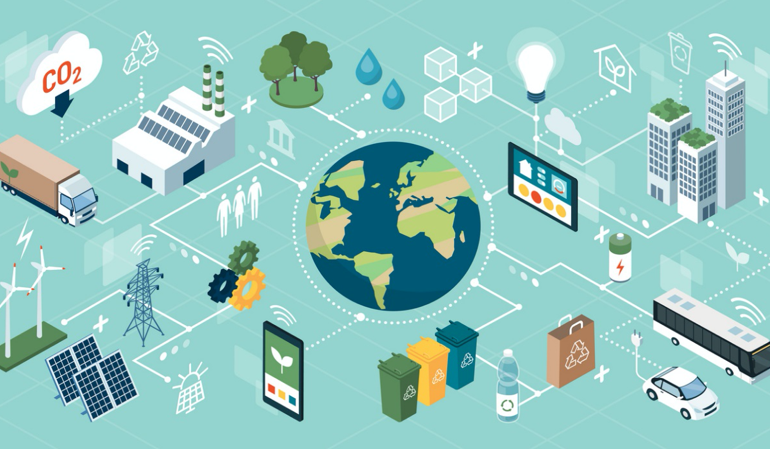The rapidly growing threat of climate change and the global pandemic caused by COVID-19 have both served to highlight acute vulnerabilities in supply chains. Disrupted supply chains could mean higher prices, higher costs, slashed corporate revenues, and interrupted production and distribution of products.
Briefly, supply chains are a large network of systems that produce everything we use from food to cars to phones to medicine. The products that end up at our doorstep are composed of thousands of different parts which are received from various places around the globe, connecting companies, industries, and countries. According to McKinsey, the supply chain network is worth almost $20 trillion a year and now must become more resilient in order to withstand disruptions caused by a larger probability of severe climate events. Where companies used to prioritize efficiency and reliability, now they must learn to add sustainability and resiliency to the mix as well.
One of the most essential steps companies must complete is to set up ‘control towers’, essentially digital twins of their supply chains from start to finish. Bain & Co claims these “digital twins” are necessary for visualizing the path it takes to make and complete their product. They estimate that “up to 60% of executives have zero visibility into items in their supply chain beyond their first-tier suppliers.” Because of this, the World Economic Forum argues “without visibility into how materials and goods entered and moved through those chains, it is difficult if not impossible for companies to effectively police those inputs and outputs for sustainable practices.” But with control towers set up, companies are able to see individual items, trace where they come from, and evaluate how they are made in order to gauge their sustainability.
McKinsey categorizes supply chains into three types: specialty, intermediate, and commodity. They caution that the more “specialized” a supply chain is, the more liable the final product is to be disrupted if one critical piece is obstructed. On the flip side, if a supply chain is more commodity-based, there is a “larger number of downstream players that may be affected by spiking prices from a sudden reduction in supply.” See their resulting figure for a visual representation of the problem.

About AKCEL Partners
The AKCEL Partners sales consultant firm was founded by three executives with strong bonds throughout many branded and retail categories. AKCEL Partners offers a unique business proposition from other sales consultant firms. The AKCEL sales consultant firm tailors its account team and market plans specifically to each client’s needs. Unlike other sales consultant firms, AKCEL Partners acquires sales consultant talent to fit each job, securing experienced professionals who can get immediate access to decision makers at the highest levels. To learn more, go to www.AKCELPartners.com.


